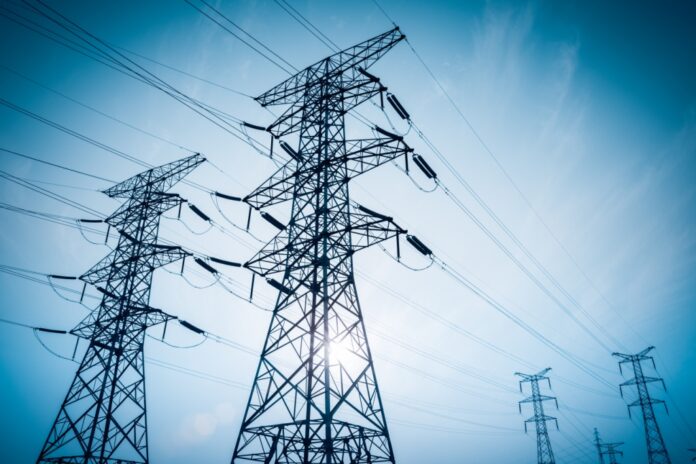ISLAMABAD: The government on Wednesday asked the National Electric Power Regulatory Authority (NEPRA) to recover Rs 5.40 per unit increase in power tariff from consumers over a six-month period in order to protect consumers from a huge electric shock and prevent a drop in the recovery of electricity bills.
The shocking revelation came to light during a NEPRA’s public hearing where it was disclosed that the previous significant hike in the power tariff had caused shutdown of a number of industrial units which in turn resulted considerable drop in the demand for power distribution companies (DISCOs). Fearful of a similar scenario, the government voiced concerns that many power consumers would refuse to pay their bills with the newly imposed Rs 5.40 per unit hike in electricity rates.
Presenting their apprehensions to the regulator (NEPRA), power division officials informed that that last year electricity consumers had resisted paying their electricity bills following a significant increase in electricity rates. And, this time to avoid such situation could happen, the regulator is requested to allow recovery of the hike in electricity rates in six months period instead of three months’ time to provide cushion to the power consumers from the impact of the massive hike in the electricity rates. Furthermore, the officials stressed that a long recovery period would not result in low recovery of electricity bills.
The Central Power Purchasing Agency – Generation (CPPA-G) through a petition had sought increase in electricity rates by Rs 5.41 per unit on account of quarterly adjustments of DISCOs on account of variation in Power Purchase Price (PPP) for 4th Quarter of the FY 2022-23.
A major portion of this increase was intended to recover capacity payments amounting to Rs 145 billion from those honest consumers who have been paying their electricity bills regularly while this sum would be allocated to those power plants that remained idle and did not produce electricity during that period.
During the course of public hearing, the CPPA-G officials highlighted that NEPRA had been previously approving the recovery of power tariff hike from 12 to 15 months. Based on this precedent, they advocated that this practice was already in place and the regulator should allow recovery of electricity rates during the six months period. They said that it would also result in electricity rates by Rs 3.55 per unit instead of Rs 5.40 per unit due to low consumption of electricity demand in winter season. The electricity bills are normally low during the winter season and therefore, the consumers would not feel shocks in electricity bills,” officials said.
The officials also said that consumers were already paying Rs 1.24 per unit increase in electricity rates on account of quarterly adjustment that would end in September. They suggested to recover Rs 1.24 per unit from September and Rs 2.31 per unit increase starting from October. They said that it would be minor impact in electricity bills of the consumers.
There was another shocking disclosure that power distribution companies (DISCOs) had sent out five billion units less to the consumers. This means that demand had been reduced during the period under review. It was informed that there were two factors that impacted demand of electricity. Weather had also impacted the demand. Secondly, the industry had shut down their businesses due to hike in electricity rates.
The power regulator expressed serious apprehension over the apparent failure of Chief Executive officers (CEOs) of the DISCOs for the underutilization of electricity.
It was further informed that each DISCO was drawing 600 to 700 MW less electricity from the system due to decreased demand while there were 3,50000 cases of connections pending. And, the regulator observed that growth projection was not realistic.
It was informed that growth projection was made based on last year data when weather was too hot. However, regulator sought explanation of low sale of electricity during the period under review.
Power regulator also noted with serious concerns that sale of GEPCO had decreased despite the fact it had steel melter industry. The sale of IESCO also dipped by 14 percent and it had also steel melter industry.
NEPRA said that it had raised serious concerns. Faisalabad company was also impacted despite having industrial units.
However, CPPA-G officials said that industrial consumers were 367000 earlier that closed at 373000 consumers in July.
“We can’t blindly stand numbers you are showing,” NEPRA officials said.
Power regulator also raised concerns over recovery of hike in electricity bills during six months period.
It said that such situation would impact the cash flow of the DISCOs to add into circular debt.
Power regulator said that dollar had been indexed at Rs 286.
“It does not mean inefficiency, overbilling and cost of bad governance should be passed on to consumers,” NEPRA observed.
Amidst these revelations, the regulator acknowledged how structural difficulties would affect predictions of industry growth. The regulator highlighted that the current recovery path should not jeopardize the welfare of consumers by transferring inefficiencies and poor governance costs to them. The regulator also emphasized that the provincialization of DISCOS may not be a full solution and stressed that structural adjustments within the power sector are necessary for significant improvements.
























